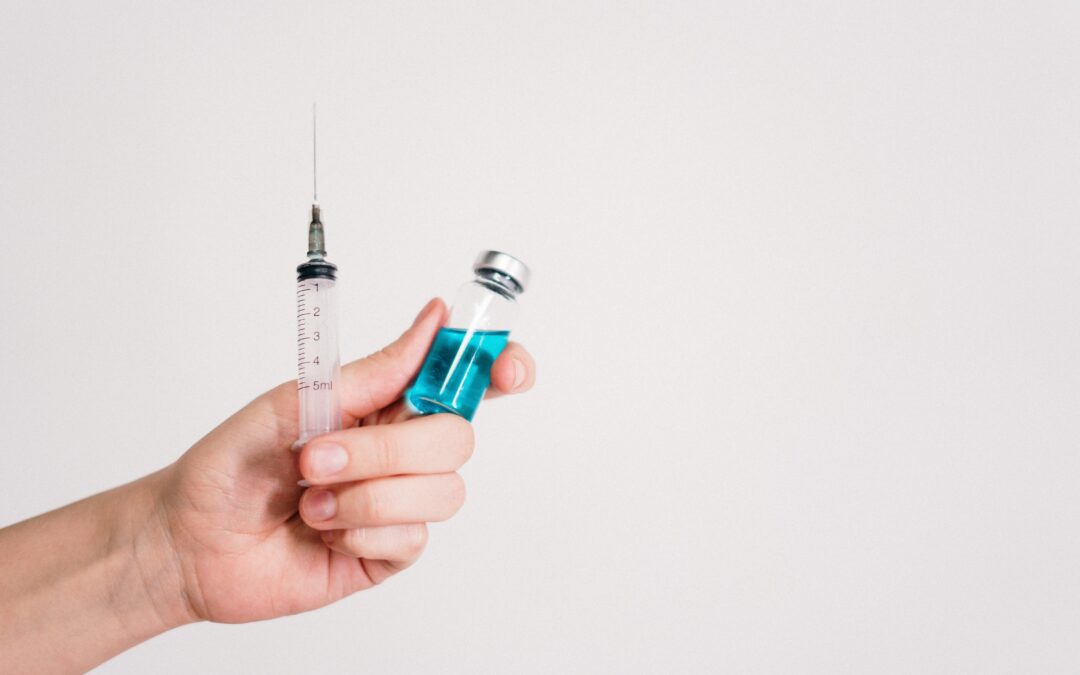Researchers at the prestigious Cleveland Clinic have entered the next phase of a novel study of a vaccine designed to prevent triple-negative breast cancer, which is the most lethal and aggressive type of breast cancer.
This new study will evaluate the vaccine’s effects on cancer-free individuals who are at a high risk of developing breast cancer.
What Is a Cancer Vaccine?
Cancer vaccines are one of the most promising emerging forms of immunotherapy, a type of cancer treatment that uses the patient’s own immune system to fight cancer. This recent Cleveland Clinic study is just one of the latest of many dedicated to developing and testing vaccines as a way to prevent cancer.
Vaccines have been used to prevent diseases caused by viruses and bacteria for nearly 200 years, but the architecture behind cancer vaccines is different. The vaccines against viral and bacterial-based diseases work by exposing patients to a weakened or inactivated version of the disease-causing agent. This allows the immune system to better identify the threat based on specific markers called antigens, and then defend against the threat.
Developing a cancer vaccine is more complicated for various reasons. While viruses and bacteria appear foreign to the immune system, cancer cells appear similar to healthy cells. In addition, tumors are generally unique and have their own antigens. These two factors make it more difficult to develop effective vaccines for preventing cancer.
However, there are reasons to be optimistic. Researchers at the Cleveland Clinic and many other top research facilities have been making progress in tackling these challenges.
About the Ongoing Phase 1a Cancer Vaccine Trial
The phase 1b clinical trial is a follow-up to a 2021 phase 1a study, which is expected to end in the 4th quarter of 2023. This phase 1a trial is evaluating patients who have completed treatment for early-stage triple-negative breast cancer in the past three years and who are currently tumor-free but at high risk for recurrence.
Researchers in the phase 1 trial are attempting to determine the maximum tolerated dose of the vaccine for patients with early-stage triple-negative breast cancer, and to optimize the response of the immune system. The phase 1a study was launched following the FDA’s approval of an investigational new drug application for the vaccine.
At the beginning of the phase 1a trial, the study’s principal investigator, G. Thomas Budd, MD, said his team was hopeful that their research would result in more advanced trials to determine how effective the vaccine can be against triple-negative breast cancer. The new phase 1b trial is the first of those more advanced studies.
The Need for New Treatments
According to Dr. Budd, triple-negative breast cancer has the least effective treatment options of all cancers. This has led to a wealth of studies and research for more effective options in recent years.
The biological makeup of triple-negative breast cancer makes it unresponsive to hormonal and targeted therapies. While this type represents between 12 percent and 15 percent of all breast cancers, it accounts for a disproportionately high percentage of deaths from breast cancer.
The Cleveland Clinic researchers hope that this vaccine can be fully preventative and safe for cancer-free individuals. If successful, this vaccine has the potential to save countless lives.
Background of the Breast Cancer Vaccine
The vaccine was developed using pre-clinical research by the late Vincent Tuohy, who served as the Mort and Iris November Distinguished Chair in Innovative Breast Cancer Research at the Cleveland Clinic.
Dr. Tuohy’s research found that activating the immune system against a lactation protein called α-lactalbumin safely and effectively prevented breast tumors in mice. He was hopeful that a vaccine backed by his research could provide a new way to control breast cancer and that this same approach could be replicated for other types of cancers.
The vaccine is designed to target α-lactalbumin, which typically disappears after lactation in normal tissues but is present in the majority of triple-negative breast cancer cases. If someone takes the vaccine and breast cancer develops, the vaccine is designed to signal to the immune system to attack the tumor and prevent it from growing.
Methodology of the Phase 1B Trial
This new study will evaluate six to 12 patients, and researchers hope to finish it by the end of the year. Participants will be given three vaccine doses at two-week intervals. Researchers will closely monitor them to observe immune response and side effects.
The participants are all at high risk for developing breast cancer and have also chosen to receive a prophylactic mastectomy to lower their risk. Patients in this category often have genetic mutations that increase their risk of developing triple-negative breast cancer or have a high familial risk of developing any type of breast cancer.

